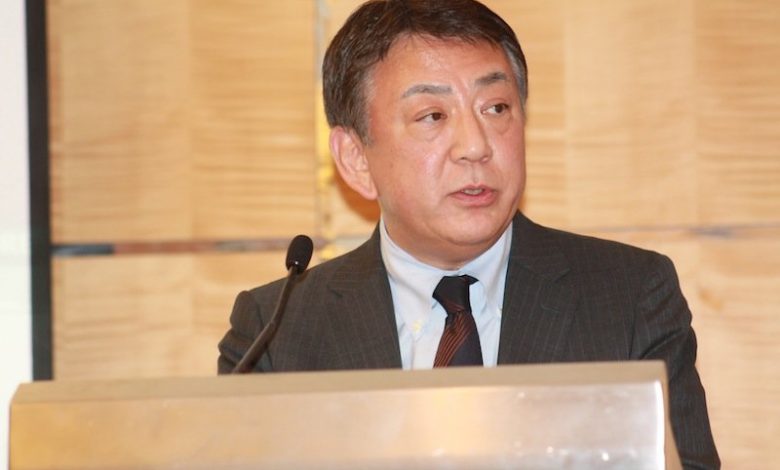ICS chairman warns on risks of regional splintering for shipping

Singapore: Shipping is in danger of splintering along regional lines, a senior name in the industry warned today. Addressing members of the Singapore Shipping Association the chairman of the International Chamber of Shipping, Masamichi Morooka, discussed the dangers of regional maritime regulation being adopted by governments at variance to the global maritime conventions adopted by IMO.
“Global rules for a global shipping industry is not just a slogan,” said Morooka before criticising the approaches to the regulation of shipping being pursued by the United States and the European Union.
Morooka began by highlighting the big problem caused by the different ballast water treatment regime that applies in the US to that adopted by the IMO through the Ballast Water Management Convention.
“Whether we like it or not, the political reality is that the IMO Convention is probably going to enter into force, sooner rather than later, and we therefore have to make it work. But the conflicting IMO and US requirements, when combined with the lack of systems fully approved by the United States, could produce an impossible dilemma in which some ships might not be able to operate in US waters if the IMO Convention enters in force before US approved equipment is commercially available.”
He added: “The problem is that the United States has adopted a process for the approval of ballast treatment equipment that is different to that adopted by IMO. At the request of the shipping industry, led by ICS, IMO has agreed to make the IMO type-approval process more robust while also advising governments not to penalise shipowners that have installed first generation equipment in good faith. But the US will not be a party to the international convention. ”
Under the current US regulations, as applied by the US Coast Guard, shipowners that have installed IMO type-approved systems, at a cost of between $1-5m per ship, might have to replace the system completely after only five years. This is a particular concern for operators that have installed ultra-violet systems.
“This is an example of the very bad situation that can result when nations decide to adopt maritime rules unilaterally.”
Morooka then turned his sights onto the European Union’s decision to pre-empt the current IMO negotiations on a global data collection on shipping’s CO2 emissions by adopting a unilateral, regional Regulation on the Monitoring, Reporting and Verification of individual ship emissions – which will also apply to non-EU flag ships trading to Europe – in advance of IMO completing its work.
“Until now, with the industry’s support, the IMO negotiations have been progressing well,” said the ICS chairman. “But there is a danger that the EU initiative will be seen by non-EU nations as an attempt to present them with a fait accompli.” This includes controversial elements, such as the publication of commercially sensitive individual ship efficiency data, an idea which had previously been rejected by the majority of IMO governments during a meeting of the Marine Environment Protection Committee in October 2014.
Morooka was speaking as part of the many events going on in Singapore Maritime Week.
